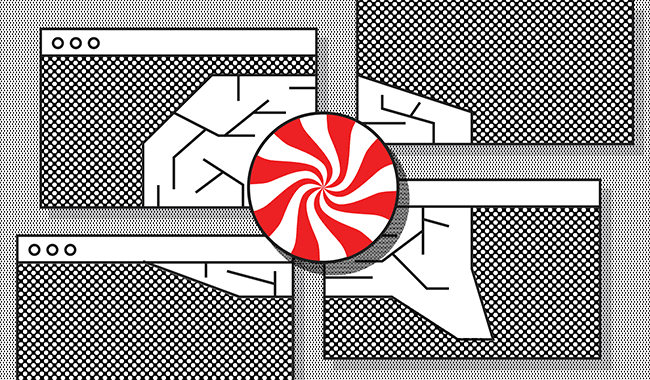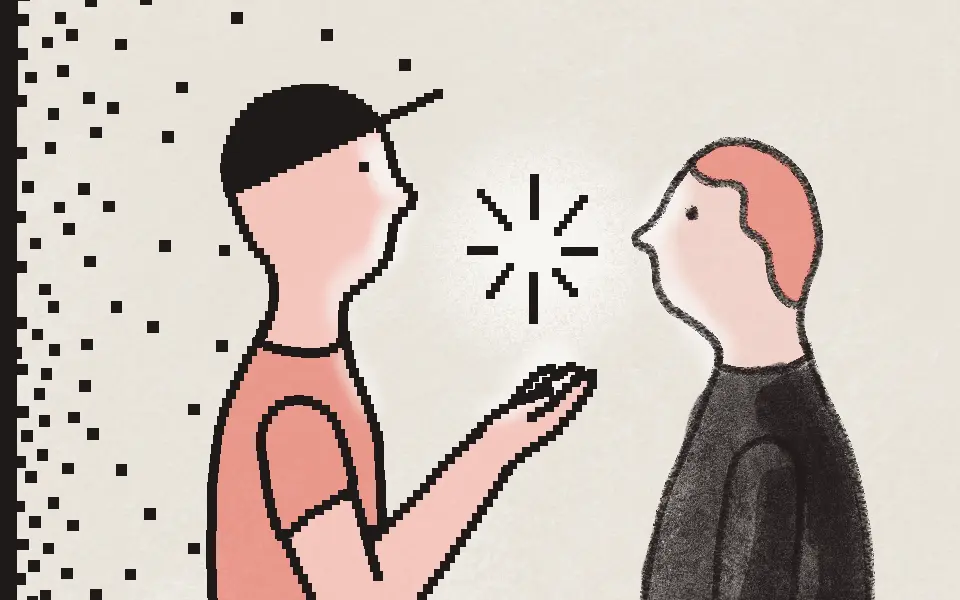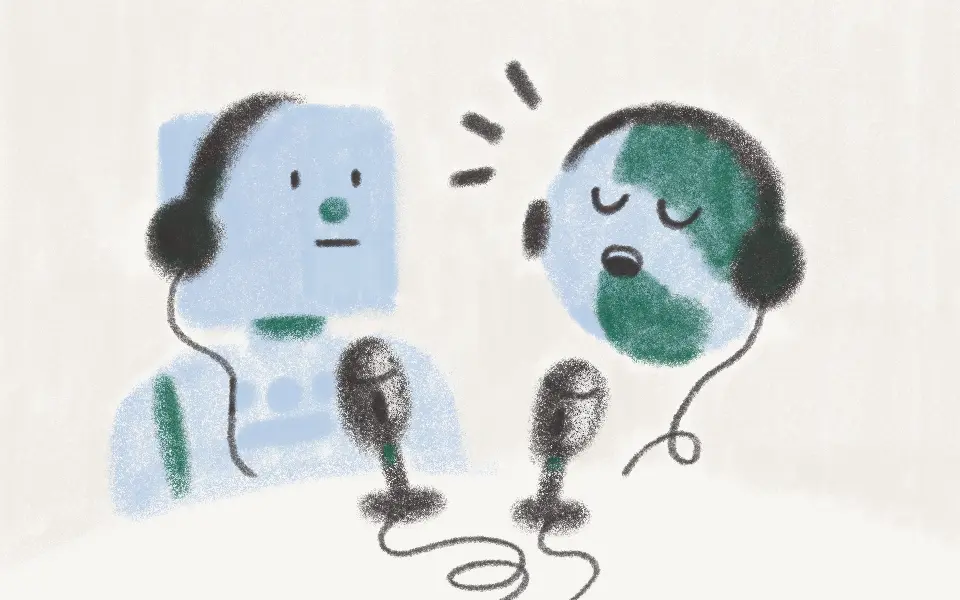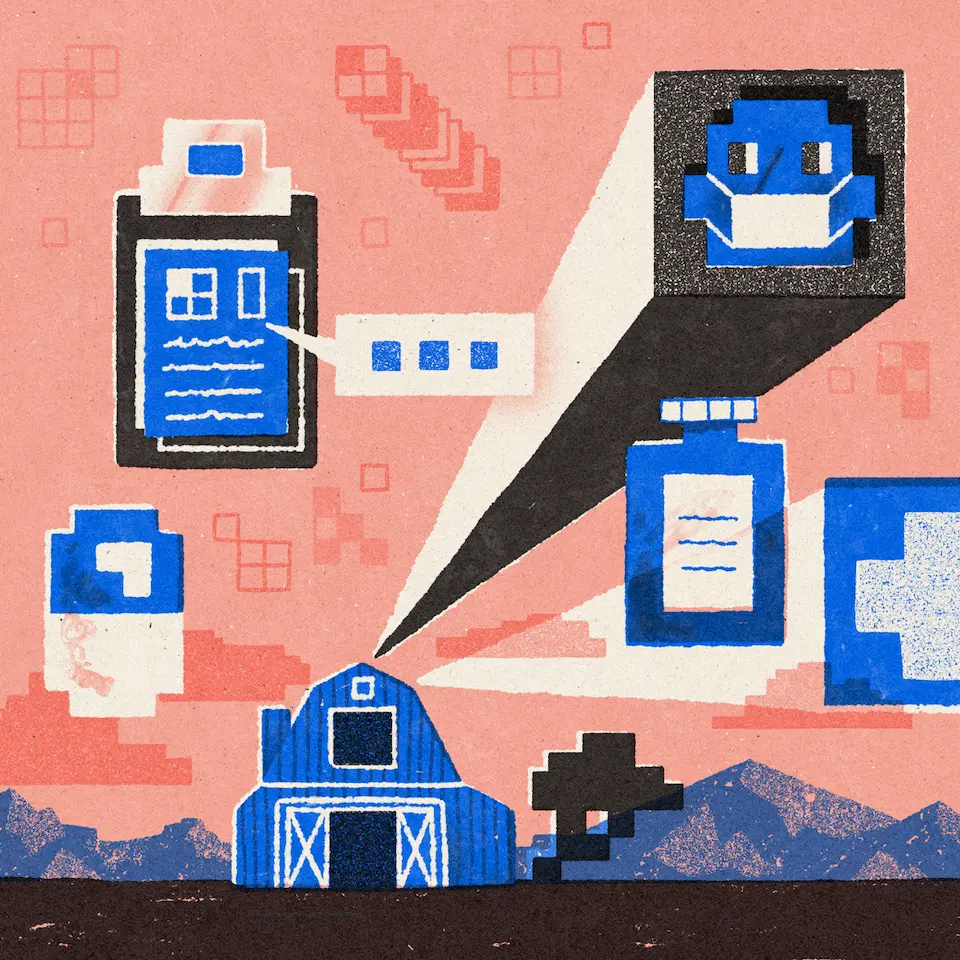
Sugar rush, granola crush: How different snacks affect your creativity
Published on December 14, 2017
‘Tis the season for office kitchens filled with holiday pies, cookies, and bottomless bowls of candy. While your sweet tooth may be rejoicing, your brain likely is not. An inevitable crash follows every treat you eat, leaving you feeling irritable, stressed, and foggy-headed. So before you reach for another bite of peppermint bark, consider the following tips on how to resist the seasonal temptations and opt for a snack that will keep your creativity humming all day long.
Glucose fuels the brain
Our brains run primarily on glucose converted from carbohydrate-rich foods. It’s the fuel that keeps us alert and focused. How well our brains use glucose also impacts problem solving, learning, and memory. As nutritionist Leslie Beck explains, “Glucose is also needed to synthesize neurotransmitters, brain chemicals that communicate information throughout the brain and body. Without enough glucose, communication between brain cells is impaired.”
Not all fuel is created equal
Although the gingerbread men in the break room are loaded with carbohydrates, they won’t supply your brain with the same sustained energy as the carbs in a bowl of yogurt and blueberries. Baked goodies and other high-glycemic foods release glucose into your bloodstream rapidly, providing you with a quick burst of energy. But after that rush, your blood sugar plummets, and you’re left with a fuzzy head and impaired memory.
Hunger pangs also return sooner, making it even harder to concentrate. For long-lasting brain power, tuck into low-glycemic carbohydrates, such as fruit, vegetables, and whole grains. These foods give up their glucose slowly, providing your brain with a steady supply of energy. Without the wild blood sugar swings cause by high-glycemic sweets, you’ll have greater clarity and mental focus.
If that isn’t enough reason to skip the cookie jar for the fruit bowl, a study in the British Journal of Health Psychology found that participants who ate more fruit and vegetables felt happier and more creative at work. As reported in The Globe and Mail, “the researchers speculate that vitamins, antioxidants, and carbohydrates in fruit and vegetables increase the brain’s production of dopamine and serotonin, neurotransmitters involved in mood, behaviour, and cognition.”
Protein, fats, and numerous vitamins and minerals also play distinct roles in powering our brains, synthesizing neurotransmitters, and fending off free-radical damage. When it comes to mentally invigorating snacks, the Washington Post suggests that real sweet spot is a mix of slow-release carbohydrates; a protein such as lean meat, eggs, or nuts; and a healthy fat like avocado. Winning combos include carrots and hummus, apples and almond butter, and salmon and whole-grain crackers.
How to defeat the office sweets
All the decisions that we make in an average workday eat away at our willpower, leaving us vulnerable to the siren call of candy canes and peppermint patties.
Fight back with these strategies for a healthier and more productive holiday season and new year: Plan your defense. Simply telling yourself not to overindulge is not enough. In fact, focusing on not eating the cookie actually might make you more likely to eat the cookie.
Researchers in the Netherlands found that planning what not to do has an “ironic rebound effect” that causes us to give into the forbidden habit even more. Before the cookies start calling, decide exactly what you’ll do instead of chowing down on them (e.g., eat an apple, go for a quick walk, chat with a colleague).
Studies have shown that people are two to three times more likely to avoid temptation when they’re prepared with a specific plan of action. Keep brain food nearby. Humans have a hard time resisting food that’s visible and easy to grab. This is especially true when it comes to junk food. In a study that looked at the influence of proximity and visibility on candy consumption, participants ate 2.5 more pieces of chocolate when the candy was in a clear dish than when it was in an opaque container.
When the dish was moved within arm’s reach of their desks, they nommed on an additional 2.1 candies a day. As helpful as it could be, demanding that your co-workers hide any pastries or candies probably isn’t a realistic option. Instead, combat the sugar landmines scattered around the office by keeping fresh fruit, a jar of trail mix, or other creativity-boosting combos on your desk. Snack regularly.
The pressures of deadlines and heavy workloads often lead people to skip snacks or even entire meals. These choices may seem like timesavers, but they end up impairing cognitive functions and reducing productivity. To keep your blood glucose up and your brain firing on all cylinders, eat at least every three hours.
3 creativity-enhancing snacks
If you’re avoiding a sugar-induced food coma, what should you eat instead? Here are three super-charged alternatives that will get you revved up and ready to slay any reindeer game. Blueberries: Next time you need a little extra creative juice, grab a basket of blueberries.
All dark-hued vegetables and fruits are good for the brain, but blueberries are among the best. The tiny fruits are packed with flavonoid phytochemicals that help brain cells respond efficiently to incoming messages and promote the growth of new neurons. The berries also act as antioxidants, keeping free-radical damage in check and our brains young. Some research suggests that blueberries may even reverse age-related memory loss. In one study, older rats that consumed a diet of blueberry extract for two months regained the memory and motor skills of their youth.
Walnuts: Like other nuts, these brain-shaped snacks are a great source of the essential amino acid tyrosine. Tyrosine prompts the brain to create dopamine, a neurotransmitter that plays an important role in learning, motivation, and creativity. Researchers at UCLA also discovered that eating a handful of walnuts a day can improve memory, concentration, and information processing speed.
The increased cognitive function may be due to the nut’s combination of numerous vitamins and minerals as well as its high antioxidant and alpha-linolenic acid (a plant-based omega-3 fatty acid) content. Dark chocolate: Life is too short to skip the sweets altogether. Moderation is the key here, but dark chocolate does have plenty of attributes to justify nibbling on a few pips. One study on the benefits of chocolate showed that cocoa powder and dark chocolate had the same or greater antioxidant powers compared to various fruit powders and juices.
The flavanols (antioxidant flavonoids) in dark chocolate may improve blood flow to the brain and cognitive function. Dark chocolate also contains serotonin—the “happy hormone”—and several stimulants, including caffeine. All of which may contribute to chocolate’s mood- and brain-boosting qualities.
Remember: The greater the cocoa content, the greater the health benefits. Look for dark chocolate bars with 70% or more cocoa. No matter how creatively decorated, holiday treats are creativity zappers. They’ll leave you drained and feeling as shaken as a snow globe. Luckily, with a little forethought, you can steer clear of these sweets and instead much on snacks that will actually leave your brain feeling merry and bright.







